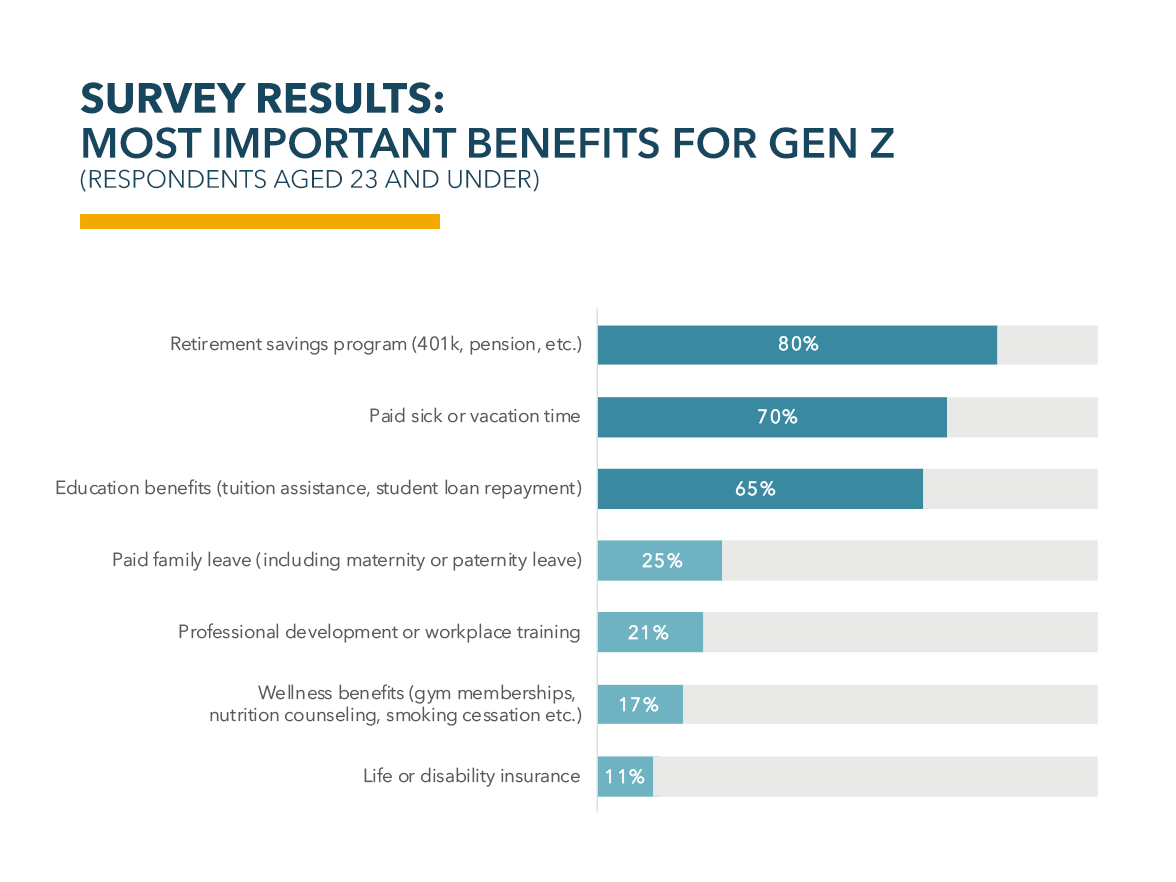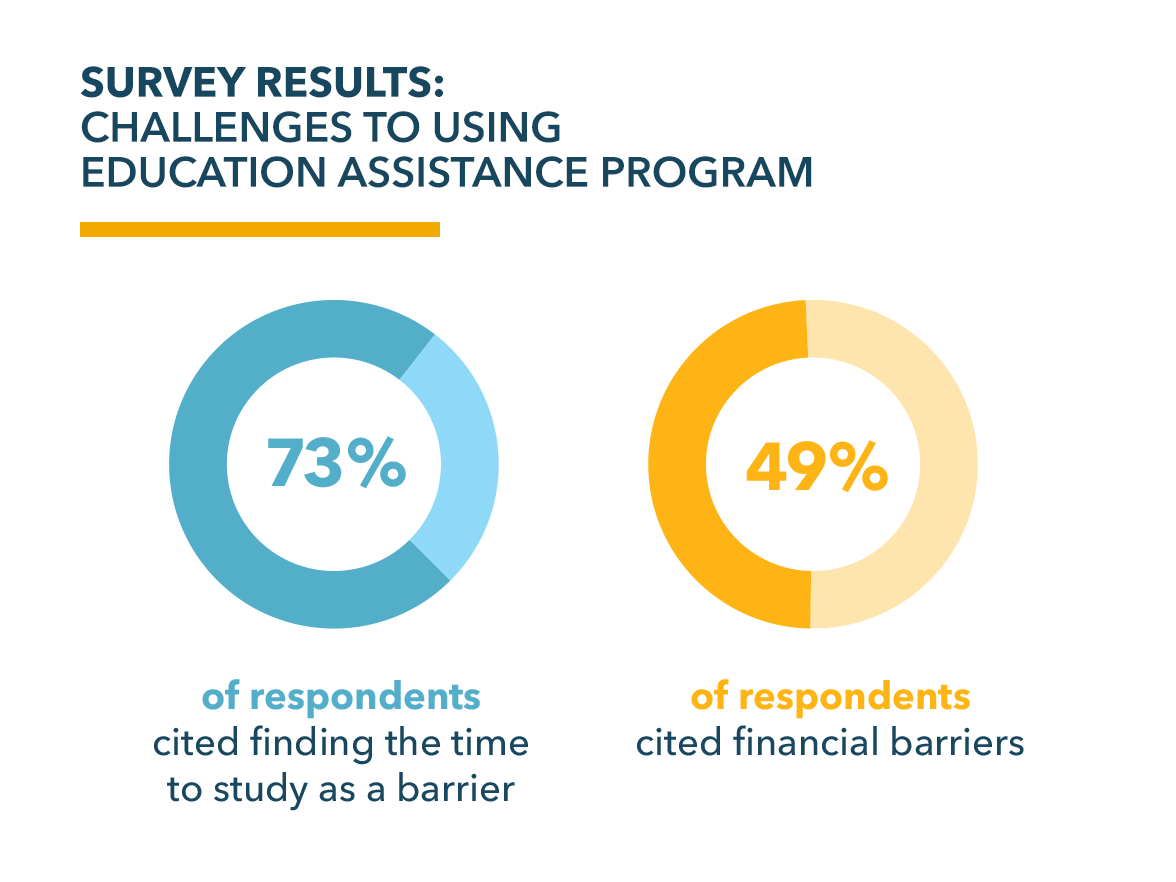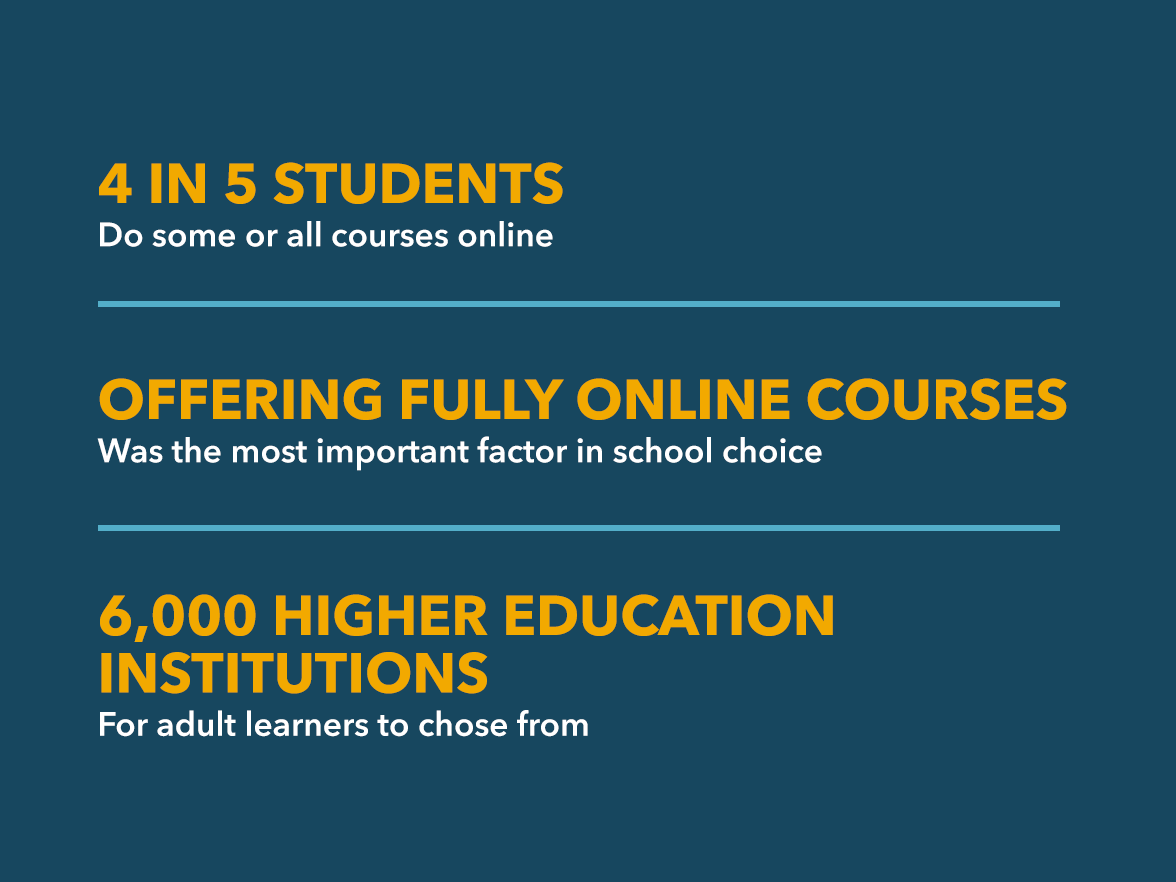Intensive change; evolving skills; fears for the future. The nation’s largest study of tuition assistance participants shows what’s driving escalating demand for education benefits, and reveals untapped opportunities for employers willing to offer them. Key findings from the study of 31,000 include:
- Underserved workforce segments ripe for development
- New attitudes towards education from Gen Z
- Resolvable obstacles to education -- and how to fix them
- Increasing demand and promising results from innovative education programs











